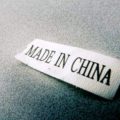Damage to U.S. manufacturing as a result of TPP will come from Japan. The U.S. 25% tariff on light trucks will go to zero as will the 2.5% tariff on autos. Light trucks make up about half of the U.S. vehicle market. Japan has excess production capacity of about 4 million vehicles. That capacity will be aimed at the U.S. market as the tariffs disappear. The impact will be directly on the auto market and indirectly on the steel, aluminium, tire, electronics, and other makers of auto components in the U.S. If you take a look at what happened to U.S. manufacturing in the wake of the U.S.-Korea free trade agreement, you will get an idea of how Japan will impact the U.S. in the wake of a TPP. Only the impact of Japan will be bigger.
The credibility card is one that the Singaporeans have played with great skill. Yet, it is difficult for me to pick up. For one thing, the only SEA countries in the TPP are Vietnam, Malaysia, Singapore, and Brunei. Before TPP, the USA already had an FTA with Singapore. So the U.S. is only adding Malaysia, Brunei, and Vietnam. I don’t see how that creates any credibility with Indonesia, the Philippines, Thailand, and the other SEA countries. More fundamentally, I think the credibility card is a Joker. The U.S. has maintained 100,000 troops and the Seventh Fleet in Asia for more than seventy years. In the past eight years, it has increased the size and deployments of the Seventh Fleet and has concluded base usage agreements with Singapore, Vietnam, and the Philippines. In the build up to TPP, the Singaporeans created a kind of a whine to the effect that Southeast Asians were feeling neglected and that the U.S. was losing credibility. It didn’t ring true to me than and it doesn’t now because if the fleet and the troops don’t yield credibility then nothing will. That the Southeast Asians, and especially the Singaporeans, are saying this sort of thing suggests to me not a real lack of or decline of U.S. credibility but a clever Singaporean maneuver to gain what they openly term “the sweet spot” between the U.S. and China.
Even more fundamentally, we must ask what credibility means. It means to be trusted to keep promises, commitments, and agreements. How could not initiating a free trade negotiation detract from U.S. credibility? What promise would the U.S. not be keeping if it does not do a TPP? The U.S. already has enormous trade deficits with virtually all the other TPP countries. U.S. markets are already more open to them than the markets of any other of their trading partners including among themselves. How exactly does U.S. lose credibility by not offering them even more unbalanced deals? What does credibility even mean in this context. It is a geo-political term being applied to an economic situation as a propaganda term. It is a nonsense.
Even more fundamentally, why should the U.S. be concerned about credibility in Southeast Asia. This takes me to a third point. I don’t entirely agree that the U.S. can’t contain China in the Pacific. The Pacific is a big place and the U.S. can certainly contain China within the Second Island Chain – Tokyo Bay to the Bonins (Saipan) to Guam to Palau to the Sunda Straits. But I agree that in the long term it will be forbiddingly expensive and dangerous for the U.S. to try to continue to contain China within the First Island Chain – Japan, Okinawa, Senkakus, Taiwan, South China Sea, Straits of Malacca.). Since it would be extremely difficult and perhaps impossible for the U.S. to do this, it should not try.
Nor can durable economic links constitute some kind of a substitute for a military presence. The U.S. already has very strong economic links with Southeast Asia. Apple is holding about $30 billion in Singapore. U.S. high tech companies have factories all over Singapore, Malaysia, and the Philippines. The air is thick with U.S. bankers. But none of this has stopped the Chinese influence from spreading. No one in Southeast Asia has said to the Chinese: “oh no we have the American market and we really don’t need or want to sell to you.” They may resent the Chinese, but not enough to refuse to take their money. So why should the U.S. extend extra special unbalanced offers to SEA in what is necessarily a hopeless effort to contain Chinese economic influence. The lack of a TPP doesn’t mean that the SEA countries won’t continue to sell to the U.S. or that U.S. investment in SEA will dry up.
There is growing resentment and concern in SEA. So let it mature. U.S. doesn’t need a TPP for that. If the SEA countries become concerned enough that they are prepared to take propose some concrete steps that might actually hinder Chinese influence, then the U.S. will always be prepared to listen. Maybe they would propose to give the U.S. the same access to their markets that it has now, without a TPP, offer in ours.
I don’t think the real containment of China will come from outside of China. I think it will come from within. I think China’s economy is in more trouble than is commonly believed. I think that the desire of the Chinese Communist Party to maintain power is ultimately at odds with its continuing economic development. I predict trouble or what the Chinese call “interesting times” in China.
The counter to China should be a closer alliance between Japan, India, and the SEA countries with the support of the U.S. but not as the first initiative of the U.S.




















Lascia un commento